Imperfect followers
Love For Myanmar Ministries Update
Christ Centered, Servant Hearted, Myanmar Focused
In Proverbs 29:2, it provides that “when the righteous are in authority, the people rejoice; but when a wicked man rules, the people groan”.
The latest research shows that only 51% of all faith voters in America are likely to vote in November. That means a full 104 million faith voters are unlikely to vote in this election.
The research pinpointed several reasons why Christians are stepping away from the voting booth:
- 68% lack interest in politics and elections
- 57% dislike all major candidates
- 55% feel none of the candidates reflect their most important views
- 52% believe their vote will not make a difference
- 48% think the election results will be manipulated
In the words of the research coordinator, “Teaching people to live a culturally engaged life based on biblical principles is not about replacing a spiritual mandate with political emphasis. It’s about equipping believers to influence their culture in a way that honors God. That includes voting for the next president, as well as determining who will hold many other federal, state, and local offices.” AMEN!
- Prayer Request: This year, more than 70 nations – home to nearly half the world’s people – have already or will soon select their own leaders at the polls, according to data from the International Foundation for Electoral Systems. Please pray that no one who has yet to vote casts their ballot in hate, but with the sincerest desire of facilitating dignity, integrity, and unity for the benefit of all their fellow citizens.
Ministry thought
“There is toleration for everybody who conforms to the fashion of the day; but no toleration for anyone who believes that the laws of heaven should regulate life on earth.” Charles Spurgeon
Although I feel that my heart is centered in God, my mind periodically acts for its own sake, conforming its actions in other directions. As a result, my will consents to satisfying desires which disrespect my Christian values.
The unity of one’s heart and mind around our Christian values gives rise to our character. Many of the causes championed by my mind are worthy ones; however, inexplicably I will freely turn away from the values that underpin my Christianity.
The unfortunate truth becomes that Christians’ failures are used as clubs against their way of life, as excuses for others to set aside their interest in the teachings of Jesus Christ. More sadly, are the Christians who fall into the trap of “perfection”, the mindset which defies our humanness. Certainly, as Christians, we are held to a higher standard, and often reminded that “to whom much has been given, much is required” (Luke 12:48).
However, Christians shouldn’t allow criticism of their values to rob them of their motivation to become active participants in the governance of their cities, states and countries. Many of our cities, states, and countries are on a path towards godlessness. Where is the spirited part of the Christian soul that is willing to sacrifice personal ridicule in defense of Godly principles? It isn’t arrogance to act upon the belief that a government deprived of Christian guidance has handed its future over to Satan.
However well meaning we are, no matter our efforts to help the persecuted, poor, or sick, we are never absent from being held accountable for our brokenness. It is our responsibility to acknowledge our errors of judgement to the keeper of our moral principles, and to have the moral backbone to defend our faith as imperfect followers. We can never be perfect, but we can be more courageous.
When hope dies in the hearts of Christians, how long before democracy fades? “Christianity, if false, is of no importance, and if true, of infinite importance. The only thing it cannot be is moderately important.” C.S. Lewis
Gary Watkins, LFM Co-founder
Myanmar coup day 1,356: Recent News Highlights
“God doesn’t want our success; He wants us. He doesn’t demand our achievement; He demands our obedience.” Chuck Colson
- Cross-border aid: Aid workers state that only very limited quantities of international aid that goes through the junta reaches those in need in Karen and Karenni states, due to restrictions imposed by the junta. People living in areas controlled by armed resistance organizations are more reliant on international aid to help support them than others in junta-controlled areas. This is because aid that goes through the junta and is distributed by them does not reach areas controlled by resistance groups because the junta is exploiting and weaponizing crises and aid distribution.
- Prisoners: Nearly 700 people, including political prisoners, were recently transferred from Sittwe Prison in the Arakan State capital to an unknown location by boat. Fighting between the Arakan Army and the military has been escalating near Sittwe since September. Around 500 prisoners were secretly transferred from Sittwe Prison in September.
- National League for Democracy: Death, detention and dissolution have decimated Daw Aung San Suu Kyi’s political party, easing the way for groups backed by Myanmar’s ruling military to claim victory at elections expected next year. The junta dissolved the party last year for failing to re-register under a tough new military-drafted electoral law, and it is barred from any new vote. Nobel laureate Aung San Suu Kyi remains very popular in Myanmar and the NLD would undoubtedly win a third landslide victory if she was to lead it into a free election.
- Health care: Obtaining medication for diseases, including tuberculosis and diabetes, and antiviral drugs for HIV has
remained difficult. In some areas such as the conflict-affected province of Karenni on the Thai-Myanmar border, confirmed malaria cases have increased by 1,000% since the coup, drastically increasing the demand for anti-malarial treatments. For individuals in areas where medication has been available, inflation of approximately 20% increased economic access barriers to obtaining it. Health workers have described vaccines to be “like a precious treasure” owing to the difficulty of obtaining them, and it has been suggested that vaccines have been distributed largely only in junta-controlled areas. Most children in areas where there are no junta health services do not have access to immunizations. Disruption in childhood immunization could affect countries outside of Myanmar if these diseases re-emerge. Combined, these medicine shortages have alarming health implications. - Ammunition: Former military officials recently revealed that the junta operates 25 defense industries plants – collectively known in Burmese by the acronym “Ka Pa Sa” – throughout the country, including 15 in Magway region, seven in Bago region, one in Yangon region, and two in the capital Naypyidaw. “The junta is surviving due to these ‘Ka Pa Sa,’ which are supplying the military with up to 50% of its firepower. While there are some weapons supplied by foreign countries, its arsenal is largely produced at the Ka Pa Sa for the ongoing civil war” they advised.
- Shan State: The Ta’ang National Liberation Army (TNLA) has successfully captured Hsipaw town in northern Shan State. The TNLA took control of the last remaining military stronghold outside the town. Northern Shan State comprises nine districts and an autonomous region, with 24 townships in total. In coordination with the Three Brotherhood Alliance, the Kokang Army (MNDAA) and TNLA has taken control of five districts and the Palaung autonomous region, capturing 14 townships across the state.

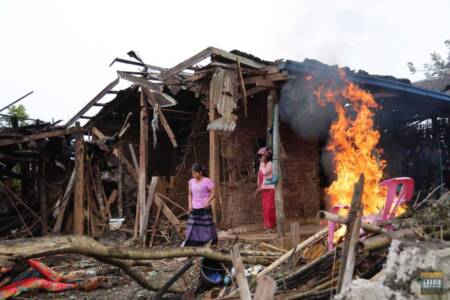
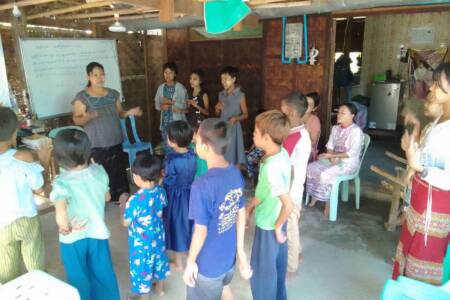
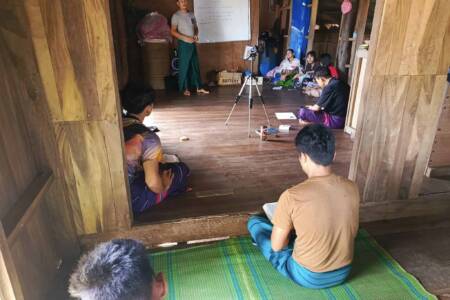
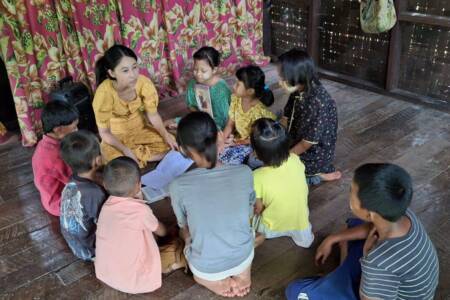

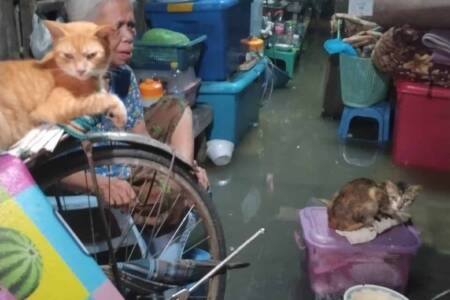
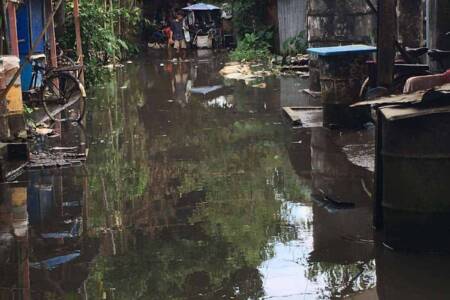
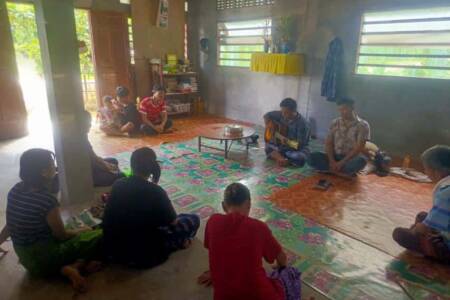
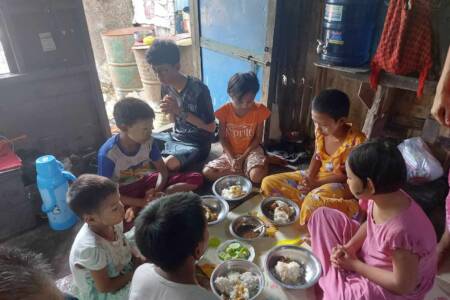
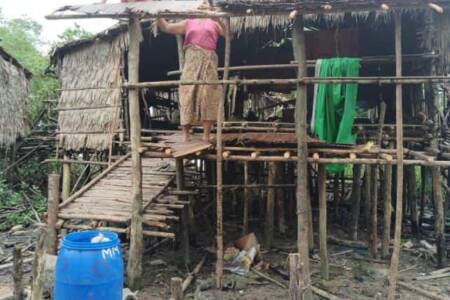
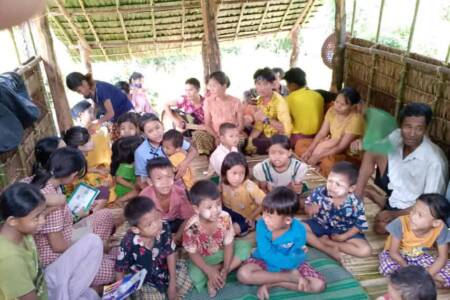
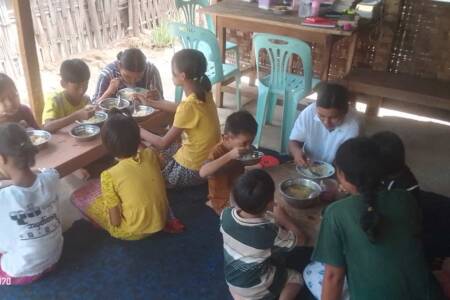


Add Comment